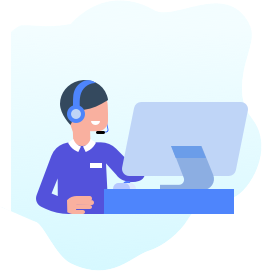Smart Preparation Tips for the UGC NET Exam
This post will share some intelligent preparation Tips for the NTA UGC NET exam. So, let’s start.
- Paper I of the exam is designed to test your general awareness, comprehension, reasoning ability and divergent thinking ability. For Paper II, you should revise the syllabus of your Bachelors’s and Masters’s course thoroughly. Many guides are available in the market to help you practice the questions asked in this Paper.
- The three basics always work in every exam – read through the syllabus carefully, make your notes, and solve the previous year’s papers. The process helps you remember things better and for a more extended period.
- Once you become familiar with the paper pattern, it will become easier for you to crack similar questions in the future. We highly recommend you solve the five previous years’ UGC NET Paper 1 question papers before starting your preparation. It will help you see that you can solve almost half the Paper without studying. This will boost your confidence and help you see how many questions in the exam are accessible and how many of them are difficult.
- When you solve the previous year’s papers, you might want to write down all the questions related to a topic in one place. This will give you an idea about what types of questions are asked in each case. This will also help you make crisp and clear revision notes relevant to the UGC NET exam.
- You must also note down the silly mistakes every time you solve a question paper. This will help you avoid them next time you solve a paper.
- Ideally, it takes 6 to 8 months to prepare for the UGC NET exam (depending on how many hours you can devote to studies every day). So, do not procrastinate until the eleventh hour.
- It takes about 6-8 hours of regular studies to clear the UGC NET exam. You cannot skip the daily revisions if you want to remove the exam.
- Make a study plan. Start with the topics you can cover quickly and then proceed to the more time-taking and complex topics. As soon as you finish a topic, mark it as ‘done’ in your syllabus.
- The quickest way to learn something is to teach someone. So, offer free or paid tuition to some students in your subject. This will help you grasp its fundamentals better.
- Try to pick up the tricks and formulae to arrive at an answer in the shortest possible time. Time-saving tips can make a lot of difference in your NET scores.
- Approximately five questions are asked from each topic mentioned in the Paper I syllabus, which includes:
- Teaching Aptitude
- Research Aptitude
- Reading Comprehension
- Communication
- Reasoning (including Math)
- Logical Reasoning
- Data Interpretation
- Information & Communication Technology (ICT)
- People & Environment
- Higher Education System: Governance, Polity & Administration
Each of these topics carries ten marks. So, focus on all of them equally.
The MCQs asked in this Paper can be of matching type, true/false type or assertion-reasoning type.
- Some of the most manageable sections in Paper 1 are Communication, Information Technology, Reading Comprehension, and Teaching Aptitude. Reading Comprehension (RC) is something we have always done since school days, while the Teaching Aptitude (TA) is quite generic. RC may need practice, while a simple reading through TA chapters should be enough.
- These days, most people are familiar with computers. Since school, you shouldn’t find the IT section difficult if you have dabbled in computers since school. Try to read up about the latest developments in the field from time to time.
- As far as communication is concerned, you might consider taking soft skill courses where you learn how to handle interviews, give presentations, and participate in group discussions.
- Many students might have studied how to research while preparing dissertations or doing study projects. It would help if you also read about government policies and the latest summits about education, the environment and other topics.
- Mathematical Reasoning, Logical Reasoning and Data Interpretation sections need regular practice.
- Revise the mathematics concepts covered in Class 9 and Class 10. Sets, patterns and approximation techniques are pretty important.
- To improve Reading Comprehension, read about a topic and then try to summarize it in your own words.
- Diagrams and flow charts are powerful visual aids for memorizing things. You may also read about other mnemonics you can use to remember something (such as making a parody of a song or using acronyms to remember a series).
Where to find support for UGC NET preparation?
DigiiMento Education is India’s best Institution to prepare for NTA UGC NET and PGT Computer Science. You can take our courses to prepare for NTA UGC NET Computer Science. To Enroll, you can call us at 9821876104 or Install our android app.




